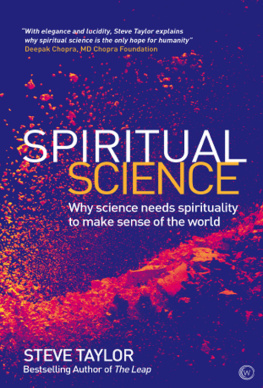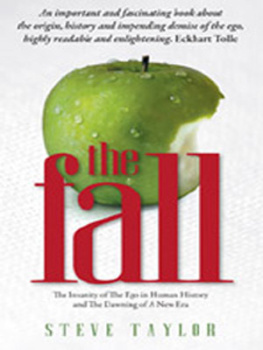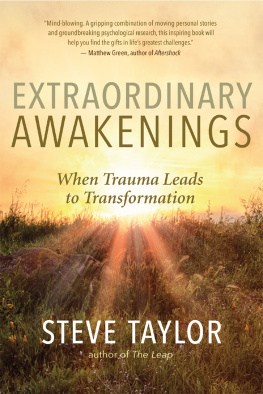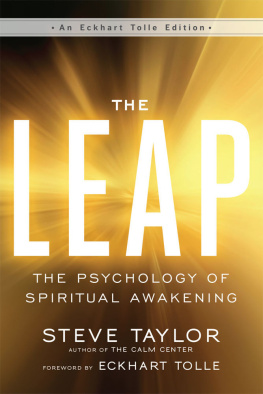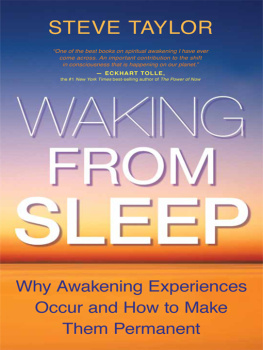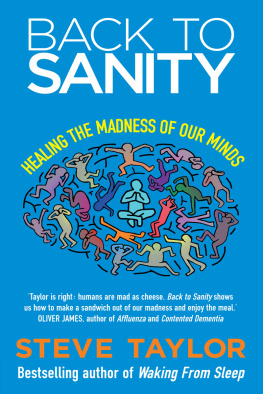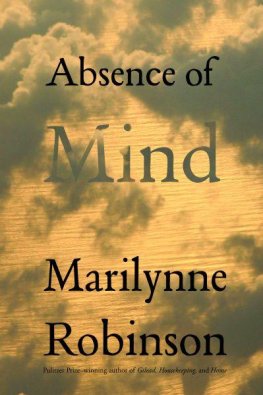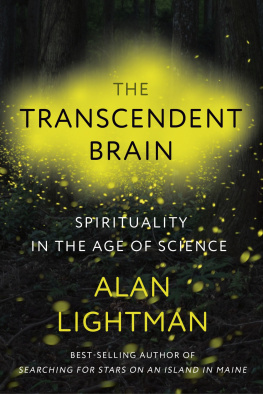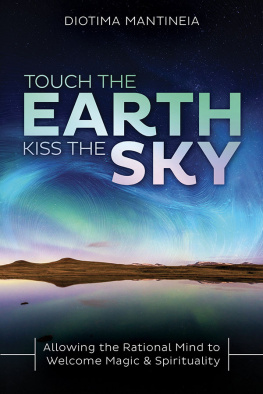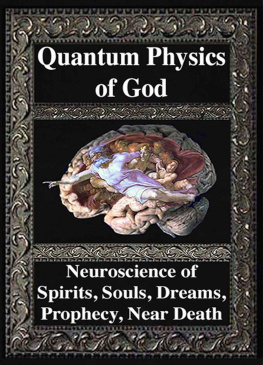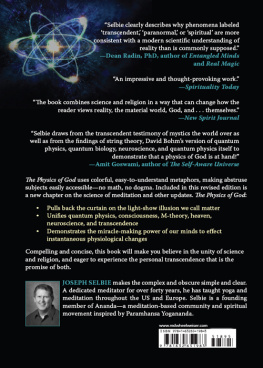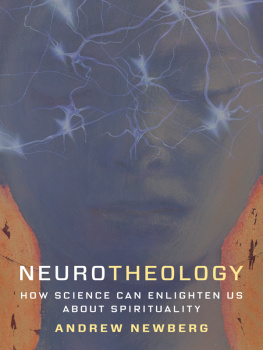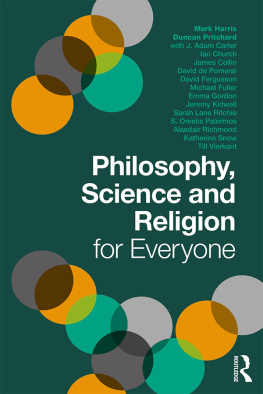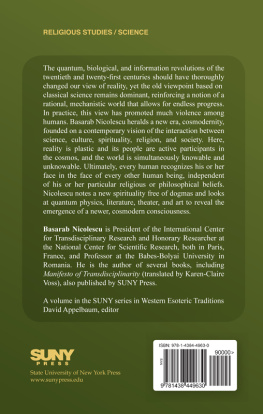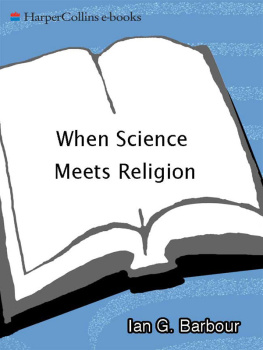Praise for Spiritual Science
As I read this book, I kept sighing with relief. At long last, a thoughtful and accessible treatment of the false divide between science and spirituality. By exploring a series of puzzles, Taylor shows how the pieces of our world fit together, if we are willing to take a breath and look at it anew.
Dr Julia Mossbridge, author of
Transcendent Mind and The Premonition Code
With elegance and lucidity, Steve Taylor explains why spiritual science is the only hope for humanity. A science based on the superstition of matter as fundamental reality could lead to our extinction but a science grounded in the understanding of consciousness as a fundamental reality as described by this book could be our saving grace.
Deepak Chopra,
MD Chopra Foundation
In this important book, Steve Taylor convincingly argues that the materialist paradigm has run its course and that the evidence from anomalous experiences must be acknowledged. Taylor shows how a panspiritist approach not only eloquently explains anomalous phenomena but can lead to exciting possibilities for the evolution of humankind and the planet. These issues affect each one of us; it is time we all sat up and took note.
Dr Penny Sartori, author of
The Wisdom of Near-Death Experiences
Materialism is dead. It just doesnt know it. Spiritual Science shows the mechanistic worldview is pass and that the science that once seemed to support it has well and truly moved on. Steve Taylors book is a very readable and inspiring guide to where we are heading as a culture.
Gary Lachman, author of
Lost Knowledge of the Imagination
Steve Taylor PhD is a senior lecturer in psychology at Leeds Beckett University, and the author of several bestselling books on psychology and spirituality. For the last seven years he has been included in Watkins Mind Body Spirit magazines list of the 100 most spiritually influential living people. His books include Waking From Sleep, The Fall, Out of the Darkness, Back to Sanity and his latest book The Leap. His books have been published in 19 languages, while his articles and essays have been published in over 40 academic journals, magazines and newspapers, including Philosophy Now, Tikkun, Journal of Humanistic Psychology and Journal of Consciousness Studies.
SPIRITUAL SCIENCE
Why science needs spirituality to make sense of the world
STEVE TAYLOR
CONTENTS
INTRODUCTION
As an academic a researcher and senior lecturer at a university in the UK people are often surprised by my unorthodox views on the nature of life, and of the world. For example, when I mention to colleagues that Im openminded about the possibility of some form of life after death, or that I believe in the possibility of paranormal phenomena such as telepathy or precognition, they look at me as if Ive told them Im going to give up academia and become a professional footballer. Its taken for granted that if youre an academic or an intellectual, you dont entertain such unusual views.
The majority of my colleagues and peers and most academics and intellectuals in general seem to have an orthodox materialist view of the world. They believe that human consciousness is produced by the brain, and that when the brain ceases to function consciousness will end. They believe that phenomena such as telepathy and precognition belong to a pre-rational superstitious worldview, which has long been superseded by modern science. They believe that the evolution of life and most human behaviour can be completely explained in terms of principles such as natural selection and competition for resources. To doubt these beliefs is to be seen as weak-minded or intellectually gullible.
People are even more confused when I tell them that Im not religious. How can you believe in life after death without being religious? they wonder. How can you be doubtful about Darwinism without being religious?
This book is my attempt to justify my views to anyone who believes that to be rational means that by definition you also ascribe to a materialist view of the world. Its my attempt to show that one can be an intellectual and a rationalist without automatically denying the existence of seemingly irrational phenomena. In fact, I will show that it is actually much more rational to be open to the existence of such phenomena.
Beyond religion and materialism
Another aim of this book is to show that, although we might not be aware of it, our culture is in thrall to a particular paradigm or belief system that in its own way is just as dogmatic and irrational as a religious paradigm. This is the belief system of materialism, which holds that matter is the primary reality of the universe, and that anything that appears to be non-physical such as the mind, our thoughts, consciousness or even life itself is actually physical in origin, or can be explained in physical terms.
I hope to show that we dont just have to choose between an orthodox materialist view of the world and an orthodox religious view. Often it is assumed that these are the only two options. Either you believe in heaven and hell, or you believe that there is no life after death. Either you believe in a God who overlooks and controls the events of the world, or you believe that nothing exists apart from chemical particles and the phenomena including living beings that have accidentally formed out of them. Either God created all life forms, or they evolved accidentally through random mutations and natural selection.
But this is a false dichotomy. There is an alternative to the religious and materialist views of reality, which is arguably a more rational option than both. Broadly, this alternative can be termed post-materialism.1 Post-materialism holds that matter is not the primary reality of the universe, and that phenomena such as consciousness or life cannot be wholly explained in biological or neurological terms. Post-materialism holds that there is something more fundamental than matter, which might be variously termed mind, consciousness or spirit.
There are a number of varieties of post-materialism. One of the most popular is called panpsychism, which is the idea that all material things (down to the level of atoms) have a degree of sentience, or consciousness, even if it is infinitesimally small, or just a kind of proto-consciousness. However, for reasons that I will describe in detail in , I favour what I call a panspiritist approach. Or you could simply call it a spiritual approach.
The basic idea of my spiritual approach is very simple: the essence of reality (which is also the essence of our being) is a quality that might be called spirit, or consciousness. This quality is fundamental and universal; it is everywhere and in all things. It is not unlike gravity or mass, in that it was embedded into the universe right from the beginning of time, and is still present in everything. It may even have existed before the universe, and the universe can be seen as an emanation or manifestation of it.
Although this is a simple idea, it has a lot of important corollaries and consequences. Since all things share this common spiritual essence, there are no separate or distinct entities. As living beings, we are not separate from each other, or from the world we live in, since we share the same nature as each other and the world. It also means that the universe is not an inanimate, empty place, but a living organism. The whole cosmos is imbued with spirit-force, from the tiniest particles of matter to the vast, seemingly empty tracts of darkness between planets and solar systems.
Next page
